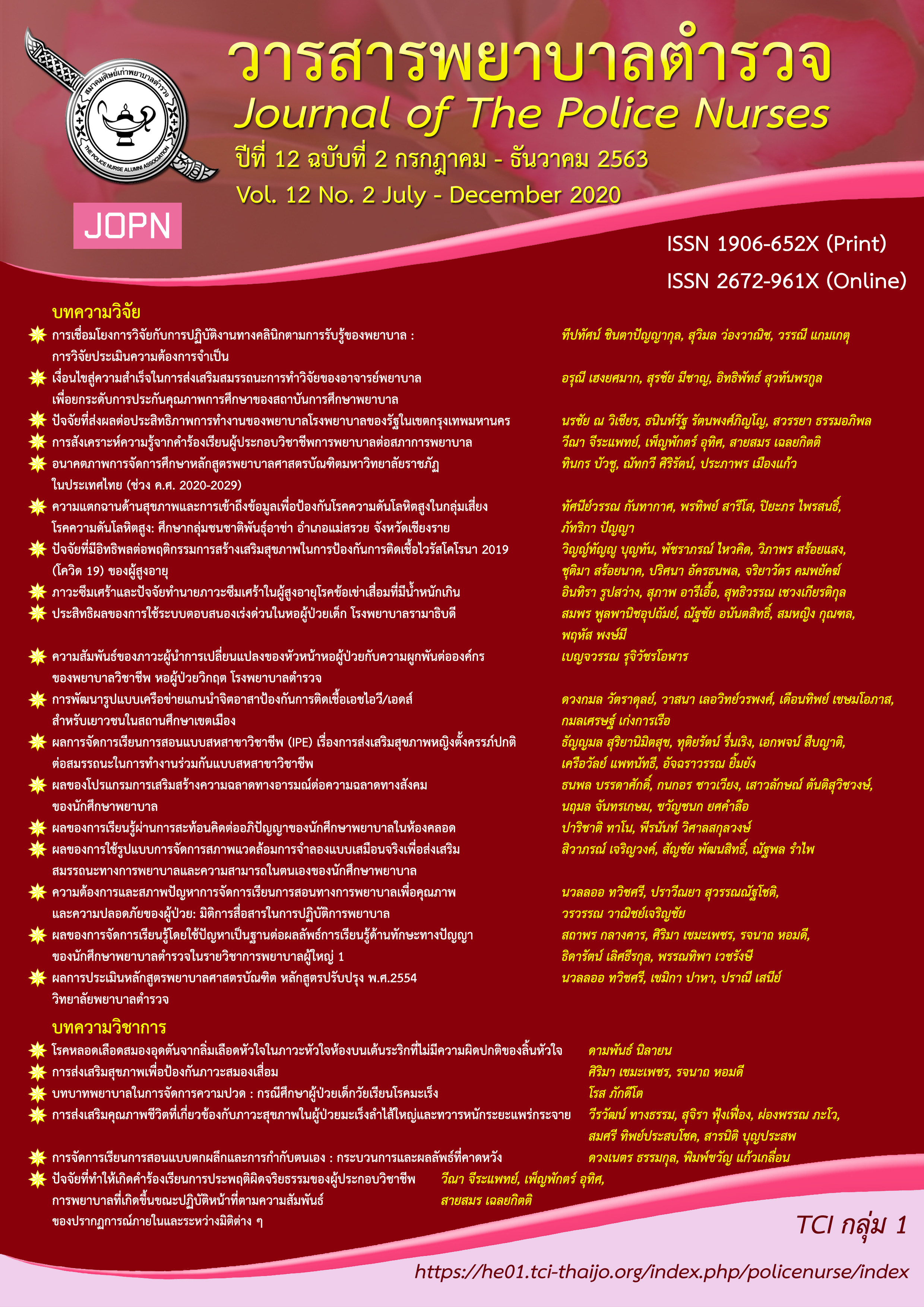KNOWLEDGE SYNTHESIS OF DISCIPLINARY COMPLAINTS AGAINST REGISTERED NURSES TO NURSING COUNCIL
Keywords:
knowledge synthesis, disciplinary complaints against, registered nursesAbstract
This documentary and analytical study aimed to synthesize the knowledge derived from disciplinary complaints against practitioners in nursing, midwifery and both nursing and midwifery between A.D. 2008-2014. The data in this study were complaints from 1) letters of a petition from clients or their representatives and 2) documents and evidences related to an accusation/allegation cases as well as inquiry and investigation reports. Data were analyzed using content analysis.
The research results indicate that Thailand’s state of professional misbehavior problems is similar to the international ones. There are 3 key causal factors contributing to complaints and professional misbehaviors: (1) Nurses’ individual factors, mainly derive from the practitioner’s mental and thinking process (an active error), (2) organization-related factors are the latent factors in the vulnerable work environment in which patient safety issues can happen (latent errors), and (3) complainant factors. The main motives to lodge complaints are (a) dissatisfaction with impolite communication behaviors, (b) dissatisfaction with the abuses in light of the waste of time and money, and (c) physical impacts of unethical misbehaviors on patients/victims resulting in their suffering from critical conditions or needs of long-term corrective treatments.
Downloads
References
Bartholomew, K. (2006). Ending nurse-to-nurse hostility: Why nurses eat their young and each other. MA: HCPro, 150.
Boonprasert, W., Cheevakasemsook, A., & Kusolvisitkul, W. 2013. The development of nursing service with caring model of professional nurses at Medical Inpatient Department, Chiangkham Hospital. The 3rd STOU Graduate Research Conference. P-HS 002, 1-11. Retrieved from https://www.stou.ac.th/
Deephaisarnsakul, P. (2013). Expectation and perception of the clients about the service quality of the hospital. Veridian E-Journal, Silpakorn University (Humanities, Social Sciences and arts), 6(1), 573–92.
Fry, S. T., Veatch, R. M., & Taylor, C. R. (2010). Case studies in nursing ethics (4th ed.). Sudbury, MA: Jones & Bartlett Learning.
Gillespie, A., & Reader, T. W. (2016). The Healthcare Complaints Analysis Tool: development and reliability testing of a method for service monitoring and organisational learning. BMJ quality & safety, 25(12), 937-946.
Government gazette. (2007a). Constitution of the kingdom of Thailand (B.E. 2550) category 3 rights and liberties of people in Thailand. episode 47, 7.
Government gazette. (2007b). Professional nursing and midwifery act, B.E.2528 “nursing council regulations on restrictions and conditions in the nursing and midwifery licensure B.E.2550”. Special episode 83.
Government gazette. (2007c). Regulations of the nursing council about to keep ethics in the nursing and midwifery professionals 2007. Special episode 83, No. 124, 56.
Hurley, J., Hutchinson, M., Bradbury, J., & Browne, G. (2016). Nexus between preventive policy inadequacies, workplace bullying, and mental health: Qualitative findings from the experiences of Australian public sector employees. International Journal of Mental Health Nursing, 25(1), 12–8.
Pongpanpisan, P. (2014). Moral and law for nursing license. The Nurses' Association of Thailand Forum.
The Justice Group. (2007). The constitution of the kingdom of Thailand. Bangkok: Foreign law bureau. Office of the Council of State.
Downloads
Published
How to Cite
Issue
Section
License
ผลงานที่ได้ตีพิมพ์แล้วจะเป็นลิขสิทธิ์ของวารสารพยาบาลตำรวจ















